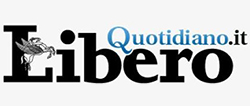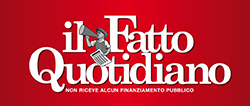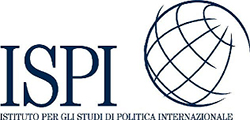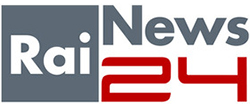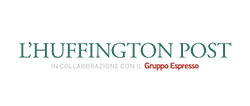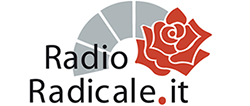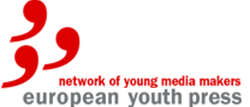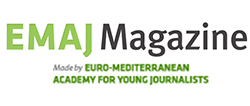Interview - тАЬLightтАЩs flavourтАЭ: Italian freelance journalist in Israel

Alessandro Di Maio, a young Italian-Australian journalist and EMAJ reporter, moved to Israel, where he works as a freelance journalist. Recently his itinerant photo exhibition “Il Sapore della Luce” was hosted in the city of Brussels. Alessandro talked with EMAJ Magazine about the exhibition (you can see some pictures of the exhibition on the blog of the exhibition), his work as a freelance journalist in a foreign country and his impressions on the situation of journalists in his host country, Israel.
You are now presenting your photo exhibition “Il sapore della Luce” in Brussels. When and where did you take the pictures?
The exhibition was on in Brussels until the 5th of April. Last year it was in Naples and it will soon be in Maastricht, Trieste and Messina. The pictures were taken during my first and second trips to the Holy Land in August and December 2009.They show daily life in Israel and the Palestinian Territories: situations far removed from the conflicts. Some of them were taken in Tel Aviv, others in Jerusalem and the West Bank.
What does the title of the exhibition mean? Why did you choose this name?
The title of the exhibition means “Light’s flavour”. My colleague, Mario Sgarrella, and I chose it because the first thing that attracted us in the Holy Land was the intense light reflected by the white stones of Jerusalem or by the dark streets of Tel Aviv. In Israel and in Palestine the light is different from that in Europe: it has special colours and flavours. The sunsets, the desert and the sea provide incredible colours. We have tried to capture the daily flavours of light with our pictures.
When and where did you start working as a journalist?
I fell in love with journalism when I was 16 years old, working as a waiter in an Italian restaurant in Sydney. Every Sunday morning many journalists came to the restaurant: their characters attracted me and their attitudes and behaviours fascinated me. After I went back to Sicily I started writing for a small local newspaper and after that everything took off.
In which media do you specialize and what are your subjects?
My speciality is writing for newspapers, magazines and online media. I tried doing radio, but it didn’t really work out. I love photography and I often try to supplement my reports with photos. I mainly write about politics and society. But since I moved to the Middle East I have also been covering the Israeli-Palestinian conflict and writing about religion and immigration.
You are now based in Israel. Can you tell us a bit more about your choice to go and work there?
My main aim is to be a war correspondent. After I finished university I wanted to gain some experience and to work as a journalist at ground level. I thought about going to Afghanistan and Iraq, but those places could be quite dangerous for someone with no experience. So I chose the Holy Land, an area not at war but with a conflict that could give me the experience necessary to advance my career and realize my dream. However, I have to admit that above all I always find it interesting to live and work in such a multicultural place filled with contrasts.
How do you organize yourself? Did you already have some contacts to work before you went to Israel?
The first time I went to the Holy Land I didn’t know anyone. I went there with my backpack, a notebook and a camera. I travelled all over the region for a month until I found the right place to rent a small apartment. The contacts eventually came about. With the time I met Palestinian and Israeli journalists, activists, students, young diplomats and politicians. These people helped me to go on.
Who are you working with at the moment?
I am mostly working as a correspondent for the Italian national newspaper Libero, one of the best selling Italian dailies. I am also collaborating with other magazines and newspapers, but I feel I still have to work hard to see my name credited in as many publications as possible.
What are the specific difficulties you encounter as a freelance journalist?
A freelance journalist has to deal with editors and directors. Most of the times this is hard. There is always the risk of being ignored, underestimated or unpaid. In general I have the feeling that the journalism system does not trust or respect younger journalists. Still, I feel lucky because these days, my career is going not badly.
What are the main challenges for journalists in Israel in your opinion? And are the challenges different for Israeli and foreign journalists?
From my point of view, generally speaking, the challenge for every journalist is to work in the most professional way in order to improve the public’s knowledge about what is happening around us. In the case of Israel and the Palestinian Territories, I think that the challenges for local and foreign journalists are different. Local journalists have two challenges: to inform the citizens and to encourage a democratic debate facilitating conditions for a serious peace process, and to help Israelis and Palestinians to know each other better. The foreign journalist has the challenges of informing his/her readers and breaking stereotypes related to the Israeli-Palestinian conflict.
What differences are there for you in working as a freelance journalist in Italy and in Israel?
In Israel and in the Palestinian Territories I can cover topics that I find more interesting. In the Near East I feel more motivated than in Italy.
In your opinion, what are the short-term consequences of the Arab revolts in Israel (politically and socially speaking)? How are they discussed in Israel?
As I come from a political science academic background, I respect the terminology I learned in the university, and do not consider the recent Arab revolts as revolutions, at least not yet. I consider them as important steps to democratic process. Revolutions are something else. Israelis followed the revolts with both interest and fear. People showed appreciation for the democratic processes and, but at the same time, fear of a possible increase in regional destabilization. On the one hand, there is the fear that radical Islamist movements (like the Muslim Brothers in Egypt) could obtain more power and modify the peace treats with Israel while on the other hand there is respect for those young Arabs who decided to fight against the tyranny of their countries’ regimes. The revolts were not expected and, in my view, have been discussed in the same way than they were in other countries but perhaps with more knowledge and respect than in Europe.
The political consequences of theses revolts will be more active diplomacy to approach and better know the policies of the future leaders. Socially speaking, I think that until the situation is clarified, Israeli citizens will feel more surrounded by hostile governments.
Interview to Alessandro Di Maio made by the French journalist Elif Kayi and published by EMAJ Magazine on April 8th, 2011.






